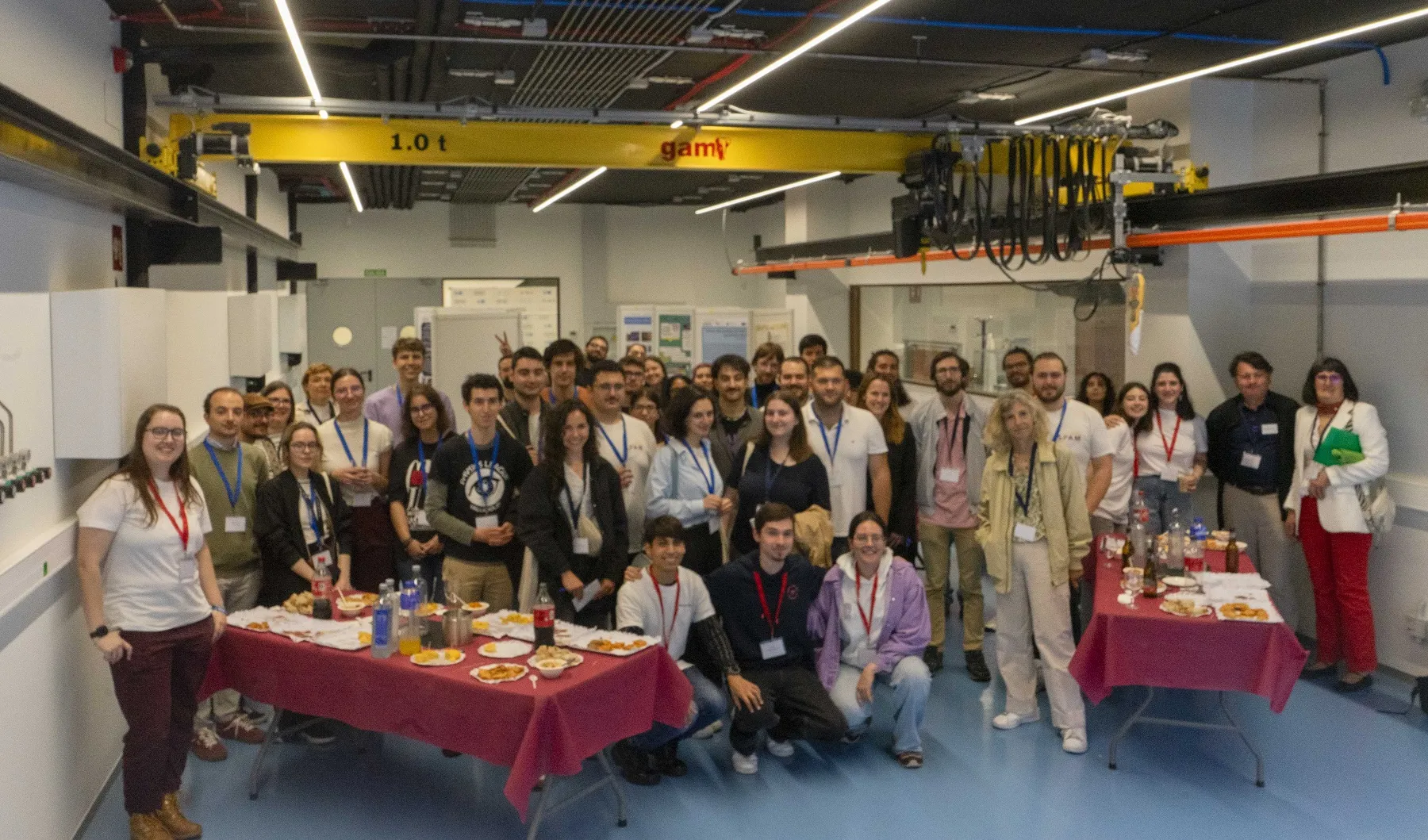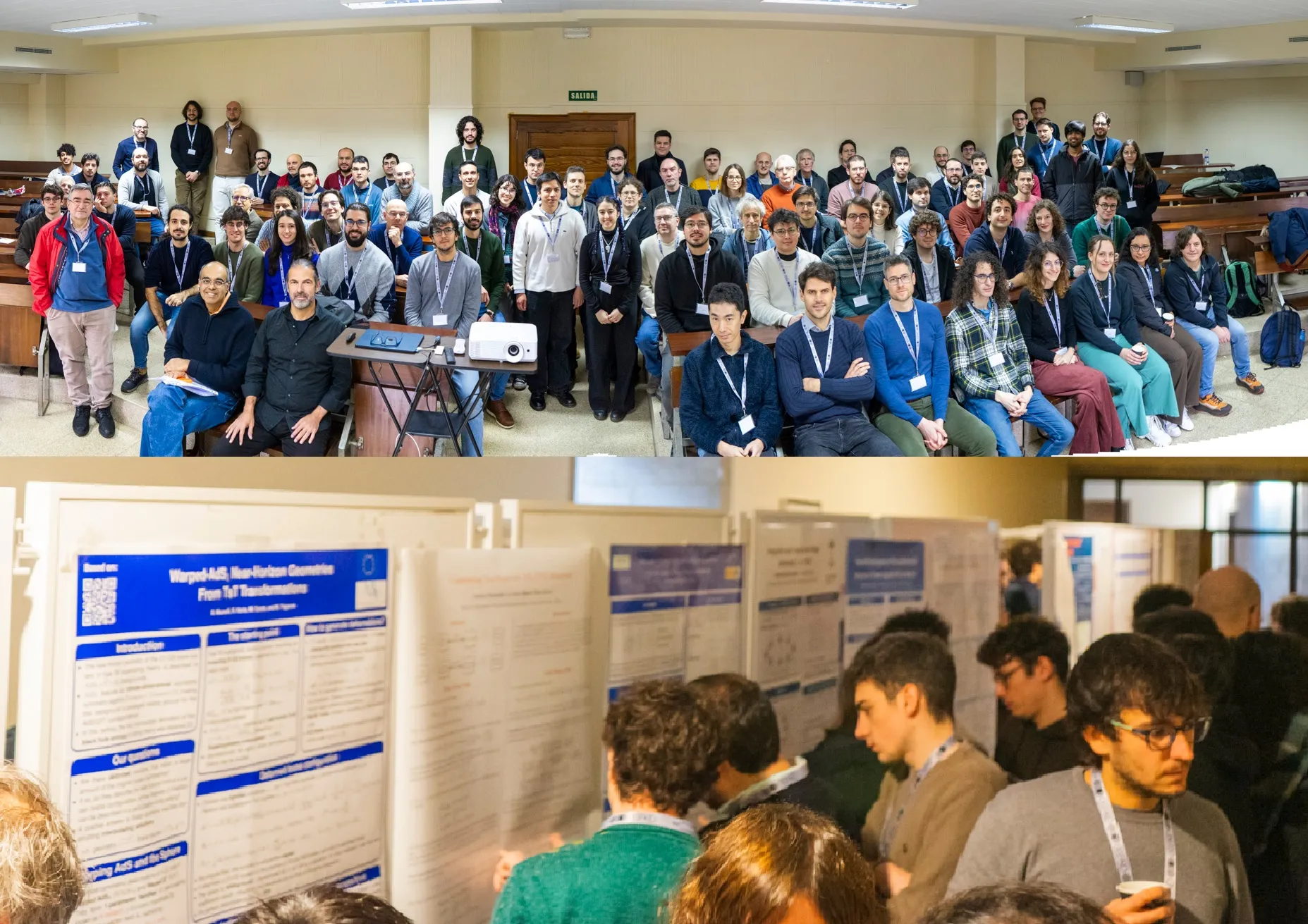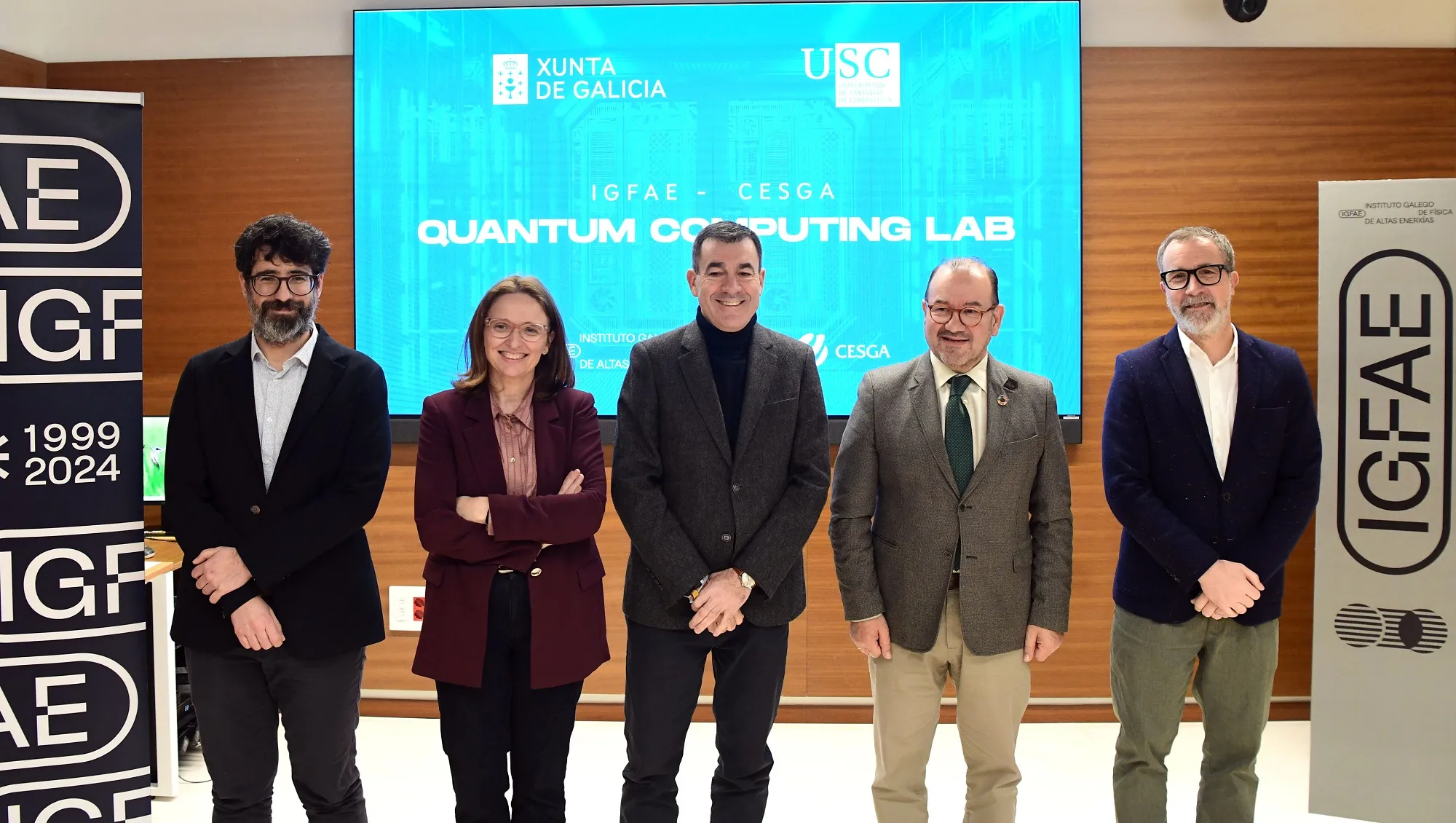The headquarters of the Instituto Galego de Física de Altas Enerxías (IGFAE) hosted part of the program of the 13th Young Minds Leadership Meeting this week. This is the annual meeting of Young Minds, a program of the European Physical Society (EPS) that promotes engagement with society through outreach and professional development for the next generation of researchers. The program funds activities aimed at improving training and international connections.
This edition, locally organized by the Young Minds section, the OPTICA chapter, and the Luzada student association, brought together more than 70 undergraduate, master’s, and PhD students from around 20 countries and 30 universities across Europe and North Africa.
IGFAE was one of the event sponsors, alongside other USC research centers working in the field—namely the Singular Center for Research in Intelligent Technologies (CiTIUS), the Institute of Materials (IMATUS), and the Faculty of Physics.
IGFAE facilities hosted two poster sessions during the meeting, in which each participating team presented their best Young Minds outreach activity of the year, creating an opportunity to exchange experiences and ideas.
According to the event organizers, these poster sessions have a significant influence on the annual programming of actions later carried out by the Young Minds sections in their home countries and institutions.
The best presentations received awards granted by European Physics Letters, the international physics journal published on behalf of the EPS by EDP Sciences, IOP Publishing, and the Società Italiana di Fisica.
Talks by Meijian Li and Pablo Cabanelas
The Young Minds program also included contributions from IGFAE personnel. Associate Director Abraham Gallas participated in the welcome session held at the Faculty of Physics.
As part of the talk program, Pablo Cabanelas, head of IGFAE’s Innovation, Transfer, and Knowledge Unit, took part in the colloquium PhD to CEO. Cabanelas, founder of the spin-off Neutron Insights, shared his journey from academia to industry and answered questions from the audience.
Meanwhile, Meijian Li, a postdoctoral researcher at IGFAE, shared her international career path, which has taken her through China, the United States, and Finland before arriving in Galicia to study the evolution of the universe in its earliest moments.
About IGFAE
The Instituto Galego de Física de Altas Enerxías (IGFAE) is a research center established in 1999 by the University of Santiago de Compostela and the Xunta de Galicia. Its mission is to coordinate and promote scientific and technical research in High Energy, Particle, and Nuclear Physics, as well as in related fields such as Astrophysics, Medical Physics, and Instrumentation. The institute hosts around 140 members involved in major experimental facilities such as CERN, the Pierre Auger Observatory, LIGO, and GSI/FAIR, among others.
The IGFAE has been accredited as a María de Maeztu Unit of Excellence by the Spanish Government’s State Research Agency. It is also part of the CIGUS network of the Regional Government of Galicia, which accredits the quality and impact of its research. The center is co-financed by the European Union through the Galicia Feder 2021-2027 Program.






